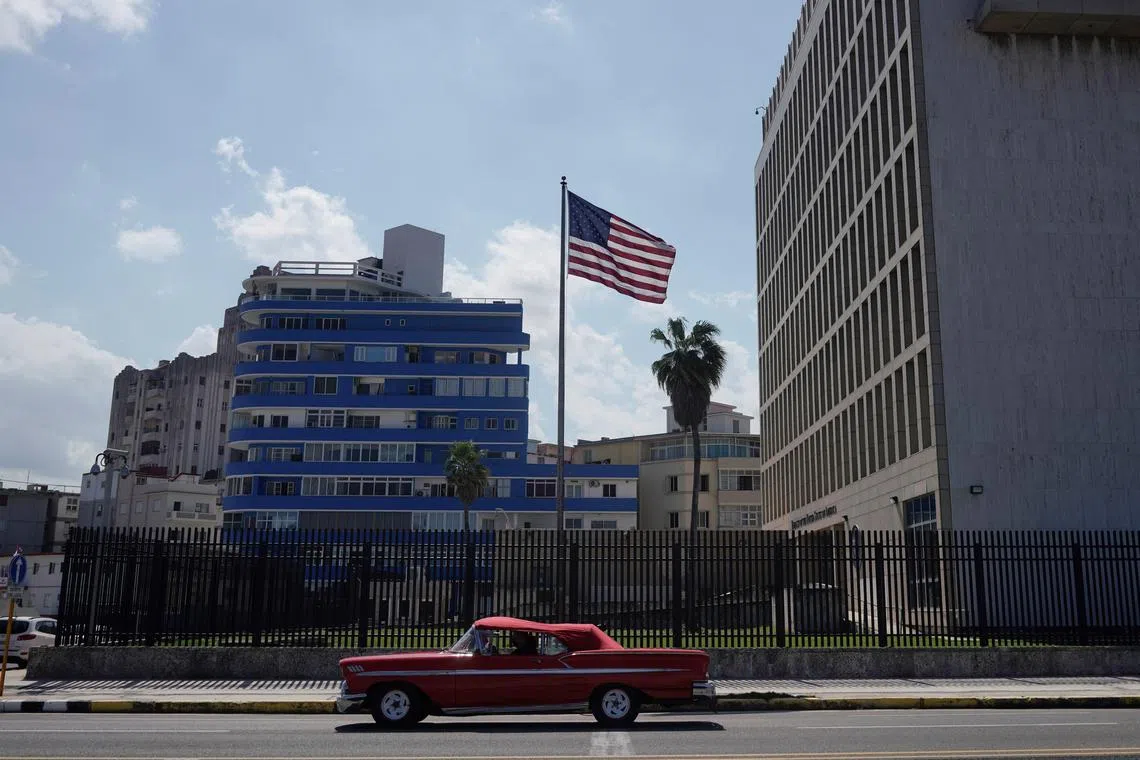US Senate intelligence panel criticises CIA response to Havana syndrome
Sign up now: Get ST's newsletters delivered to your inbox

In 2016, US embassy officials in the Cuban capital started suffering from headaches, nausea, memory lapses, dizziness and other ailments with no clear cause.
PHOTO: REUTERS
Follow topic:
WASHINGTON – A bipartisan Senate Intelligence Committee report released on Dec 27 criticised the US Central Intelligence Agency’s (CIA) response to so-called Havana syndrome health problems
The report cast no new light on the causes of the headaches, nausea, memory lapses, dizziness and other ailments that were first reported by US embassy officials in the Cuban capital Havana in 2016.
The CIA did not respond immediately to a request for comment.
A globe-spanning US intelligence investigation concluded in March 2023 that it was very unlikely a foreign adversary was responsible for the ailments that afflicted some 1,500 US diplomats, spies, other personnel and their families.
The Senate report’s declassified summary said the unknown nature of anomalous health incidents (AHIs) complicated the CIA’s response, which the agency first based on an assessment that an “attack” causing traumatic brain injuries was responsible.
That assessment, the report said, changed with intelligence analyses leading to the 2023 intelligence community finding, and was one of several factors affecting how the agency provided medical care and other benefits to those reporting symptoms.
The absence of a clear definition of AHIs, uncertainty about their origins and the CIA’s “evolving organisational structure” for dealing with the issue “has greatly complicated CIA’s ability to consistently and transparently facilitate medical care”, the report said.
Those factors also complicated the agency’s provision of compensation and other benefits to those reporting symptoms as well as its ability to communicate clearly about AHIs to its personnel, the report continued.
The agency provided medical care in nearly “100 CIA-affiliated incidents, but many individuals faced obstacles to timely and sufficient care”, it said. REUTERS

